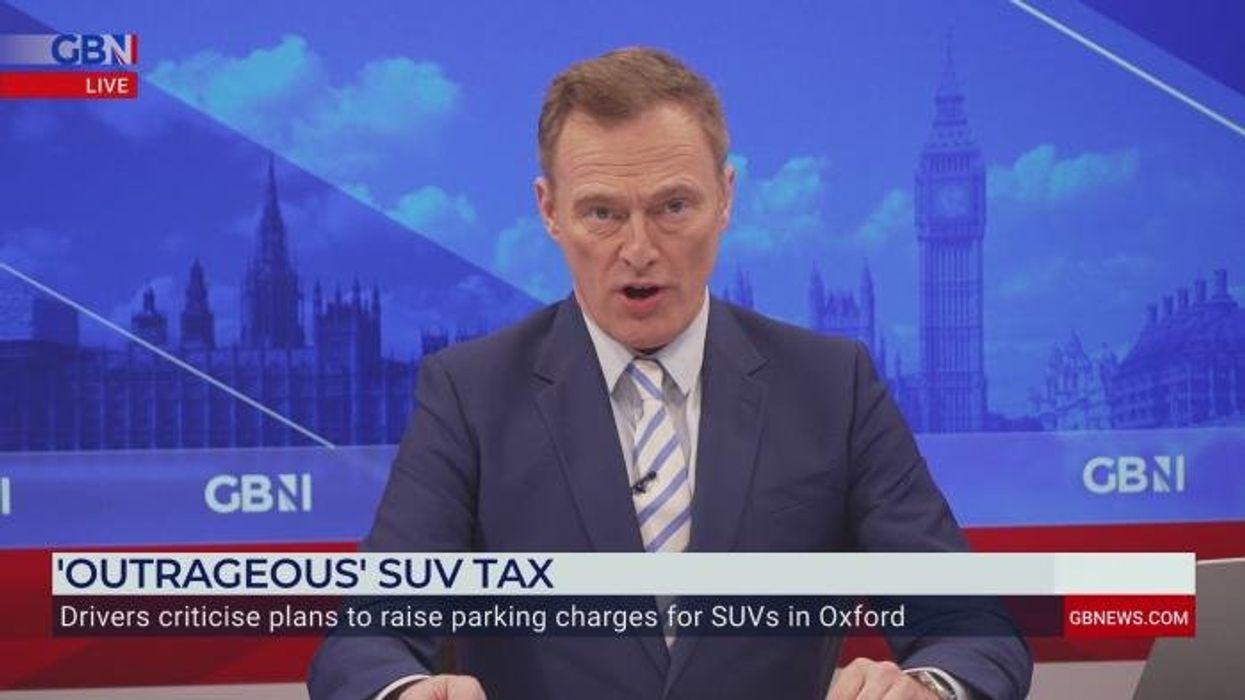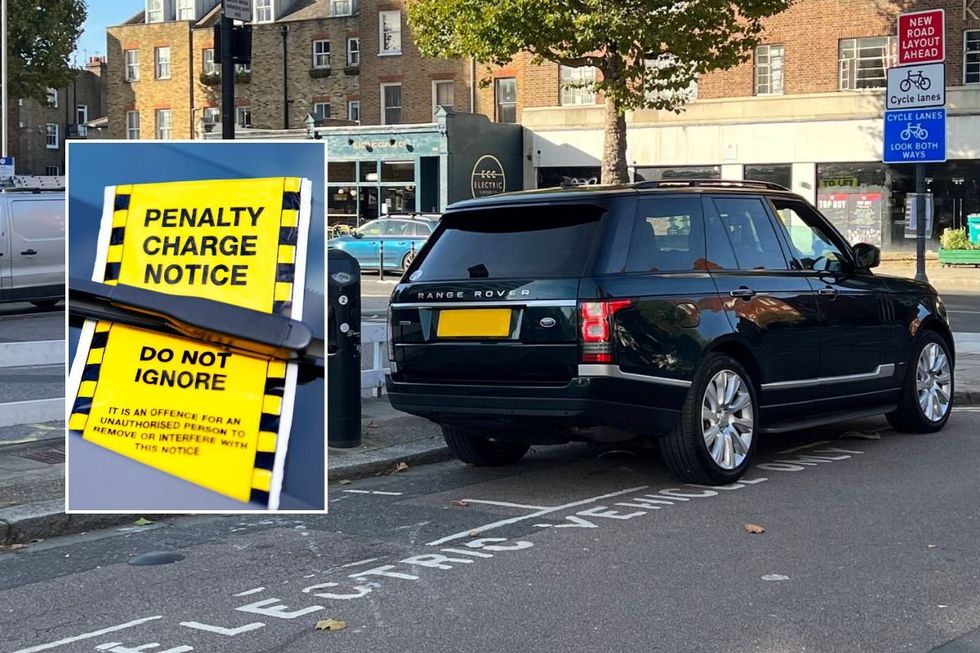Drivers of popular vehicles could be slapped with 'Land Rover tax' as major UK city plans new parking charges

WATCH: Motorists MUGGED by 'nonsense' Green party parking charge hike for SUVs and heavy vehicles
|GB NEWS

The so-called 'Land Rover tax' refers to larger parking charges for SUVs and other larger vehicles
Don't Miss
Most Read
Owners of larger vehicles could soon be slapped with hefty parking costs if a major UK city gives the green light to new plans.
A proposed levy on sports utility vehicles forms part of comprehensive parking reforms that Cardiff Council will consider at a cabinet meeting on Thursday, October 16.
The authority's city parking strategy seeks to tackle traffic congestion and enhance air quality standards across the Welsh capital.
The wide-ranging proposals would be implemented gradually over the coming decade if given approval by the council.
TRENDING
Stories
Videos
Your Say
Among the measures are the establishment of fresh parking zones throughout the city and the introduction of additional permit categories for professional and voluntary carers.
The reforms also include fees for larger vehicles with high emissions levels, alongside new requirements for motorcyclists to obtain permits when using residential parking spaces.
The initiative has drawn criticism since its initial announcement last year, particularly from students who depend on private vehicles for transport.
Campaigners argued that planned limitations on parking permits for properties occupied solely by students would negatively impact their education.

Owners of larger vehicles could soon face hefty parking charges in Cardiff
|GETTY/SUV ALLIANCE
Following public feedback, the authority has modified several aspects of the original proposals, including adjustments to the criteria for both student and commercial parking permits.
The strategy divides Cardiff into three distinct parking management zones: the city and civic centre district, an inner zone, and an outer zone.
Each area will operate under specific parking regulations, determining permit eligibility and permitted parking types.
The council's transport cabinet member, Dan De'Ath, characterised the parking strategy as an essential measure for creating a "stronger, fairer, greener, and more accessible future" for Cardiff.

Parisians have already voted in favour of stronger parking rules for SUVs
| REUTERSLATEST DEVELOPMENTS:
- Renault and Dacia car owners warned of stolen personal data from cyber attack with UK drivers impacted
- Electric car sales soar to record heights as Labour claims victory for launching £650million EV grant
- M62 traffic: Drivers face hours-long delays after 'serious' crash as emergency services rush to scene
"By listening to residents and businesses, we're ensuring that our streets work for everyone supporting local communities, tackling congestion, and helping us meet our climate goals," De'Ath stated.
He acknowledged the challenges inherent in the proposals, noting that not everyone will be satisfied with the final plan.
The Labour councillor for the Plasnewydd ward added: "But we recognise that parking is a finite resource and that difficult choices must be made to balance the needs of residents, businesses, visitors, and vulnerable groups."
The strategy aims to advance Cardiff's climate emergency objectives by promoting cleaner transport options and deterring commuter parking in residential neighbourhoods.
The central district will feature comprehensive controlled parking zones with specific operating hours and regulations that give priority to local residents, disabled badge holders, vital services, and neighbourhood businesses.
Daily visitor permits will be available to residents, though hourly options will continue for increased flexibility. The council will impose restrictions on the total number of visitor permits to prevent potential abuse of the system.
In response to consultation feedback, the authority has combined the Cardiff Bay and outer parking zones into a single management area. The specific operating days and hours for parking controls in the outer district will be determined through discussions with affected communities.
The environmental scrutiny committee will examine the proposals on Thursday, October 9, before the cabinet's final deliberation.







